Comiskey Park, located on Chicago’s South Side, was home to the Chicago White Sox for 80 years from 1910 to 1990.
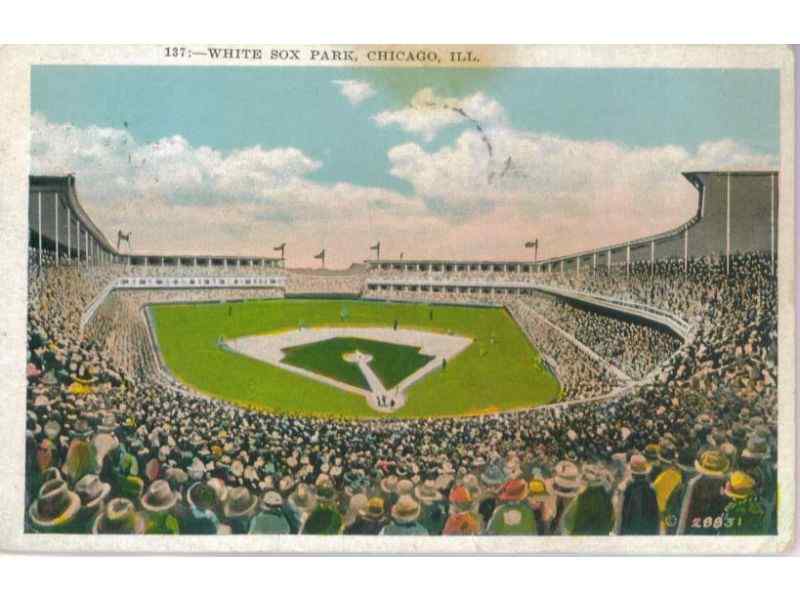
The White Sox’s ballpark predated famed Wrigley Field (Weeghman Field) by four years. The Cubs did not begin play at Wrigley until 1916.
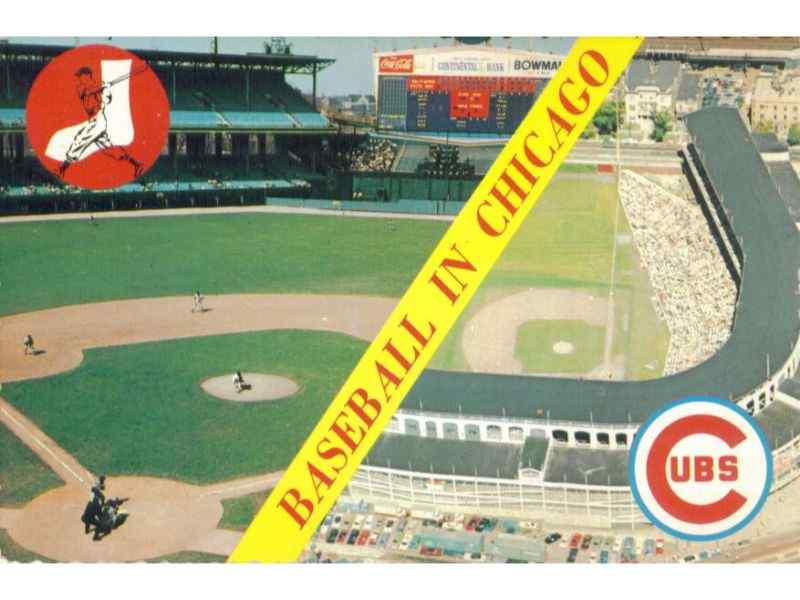
The picture below shows the single-deck seating along first base. An upper deck was added to this area in the late 1920s.
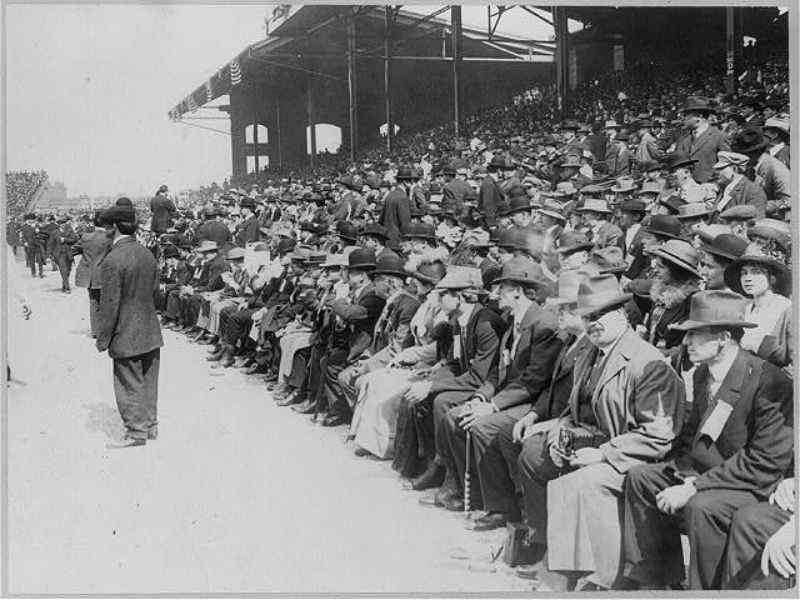
South Side Park, home to the American League White Sox from 1901 until mid-season 1910, was located just four blocks south of Comiskey Field.
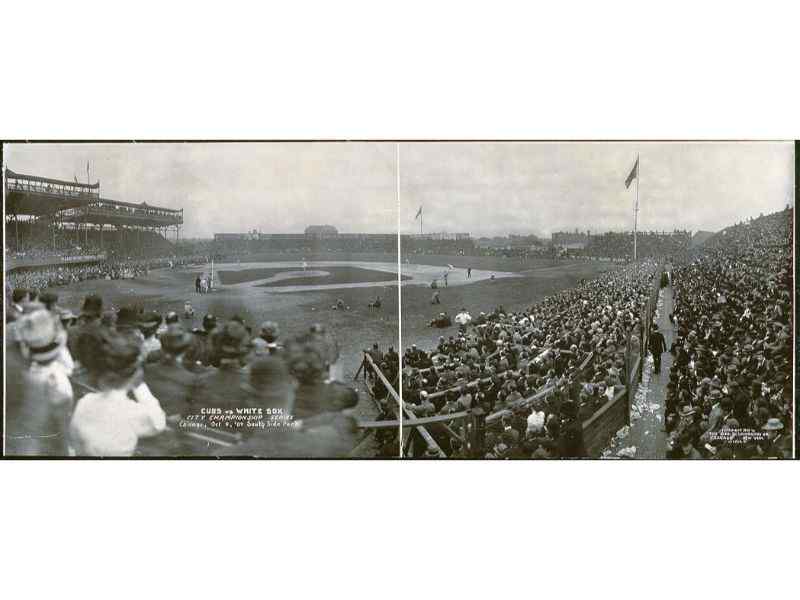
Demolition of Comiskey Park took place during the 1991 inaugural season of new Comiskey Park. As is true with many former ballparks, the former site of old Comiskey Park serves as parking for the new ballpark. In the photograph below, taken in 2003, the parking lot in the foreground is the former site of Comiskey Park. The parking garage attached to the right of the stadium sits in the footprint of old Comiskey Park’s first base grandstand.
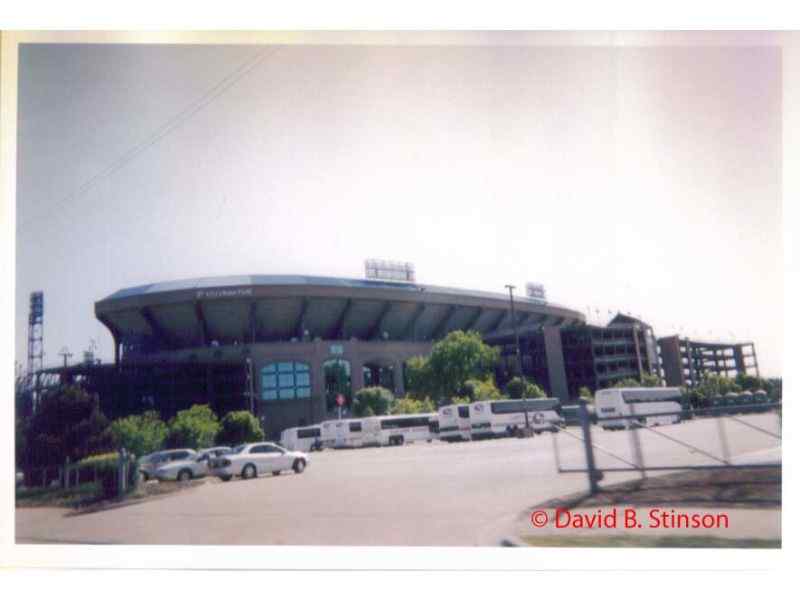
Another view of the former site of old Comiskey Park looking west, taken from Interstate 94 in 2001. Notice the new stadium’s large upperdeck. A significant portion of that upperdeck, including the upper 10 rows of seating, were removed during renovation of the ballpark in the mid-2000s.
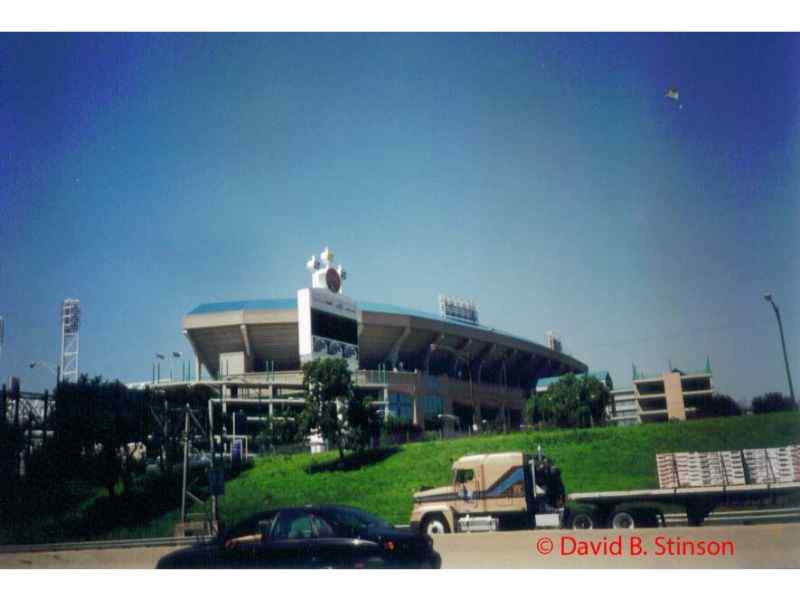
The front entrance of the new ballpark (for team officials and employees) sits just a short fly ball from the site of old Comiskey Park.
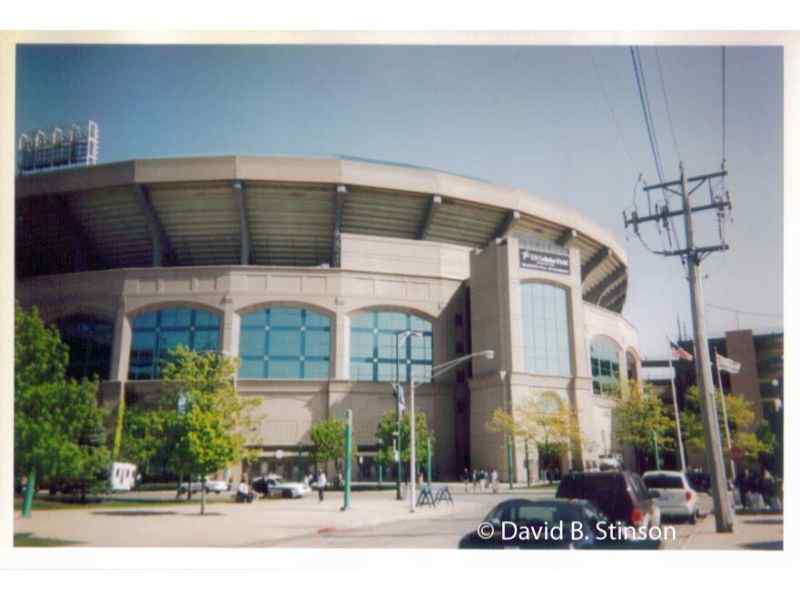
The following shot of the employee entrance to the the new ballpark was taken from the roof of the parking garage that sits in the footprint of old Comiskey Park.
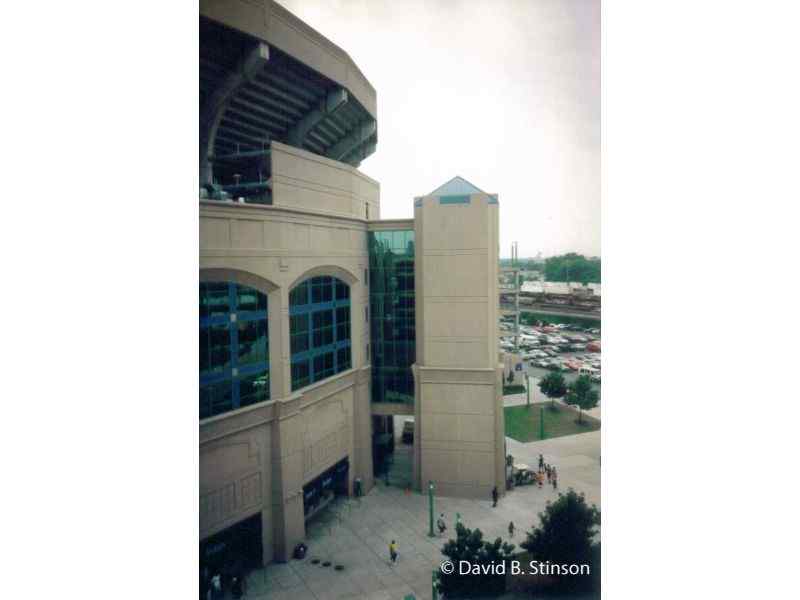
When it opened in 1991, the new ballpark also was named Comiskey Park, honoring the memory of the old ballpark. That changed in 2003 when the White Sox sold naming rights to the stadium to U.S. Cellular Field.
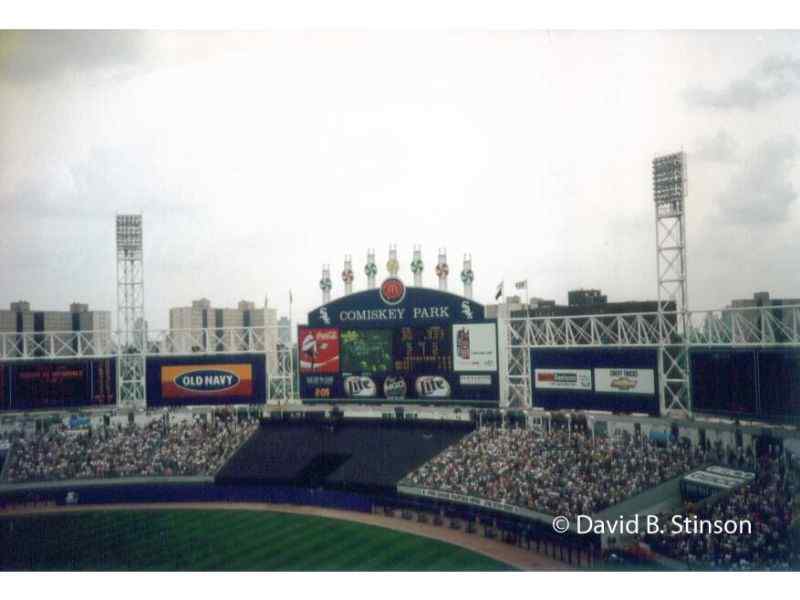
U.S. Cellular Field has undergone extensive renovation in its 20 years as a ballpark, including changes made to the stadium that sit in the footprint of old Comiskey Park.
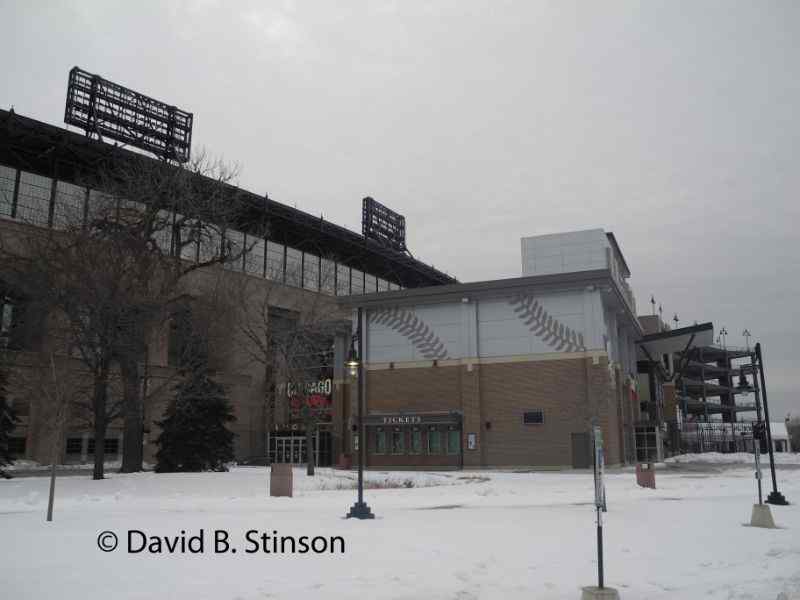
In the parking lot just north of U.S. Cellular Field is a granite marker noting the former location of Comiskey Park’s home plate.
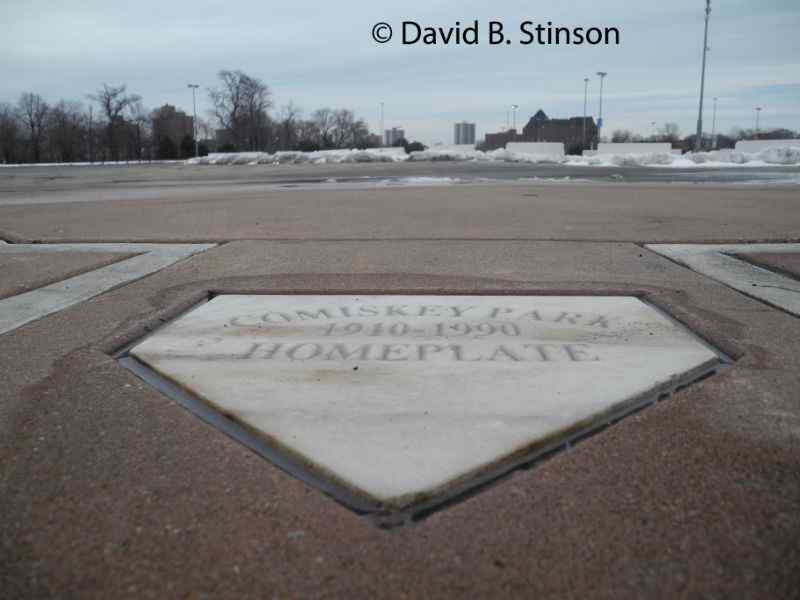
The main building of the Illinois Institute of Technology, visible beyond center field (to the right of the tall building) in the postcard below is also visible in the above picture of home plate. The red brick building was constructed in 1891 and sits across I-90 from the old Comiskey ballpark site.
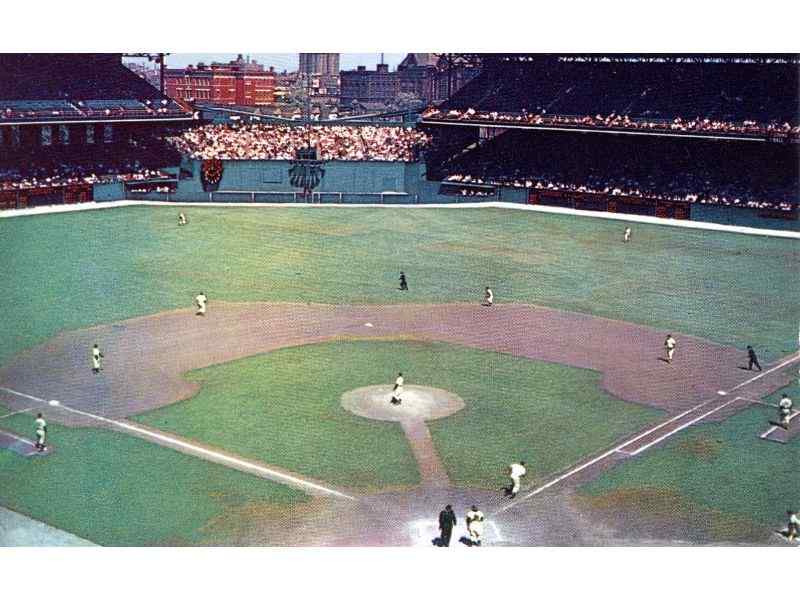
The home plate marker is located next to U.S. Cellular Field Gate 5 in Parking Lot B.
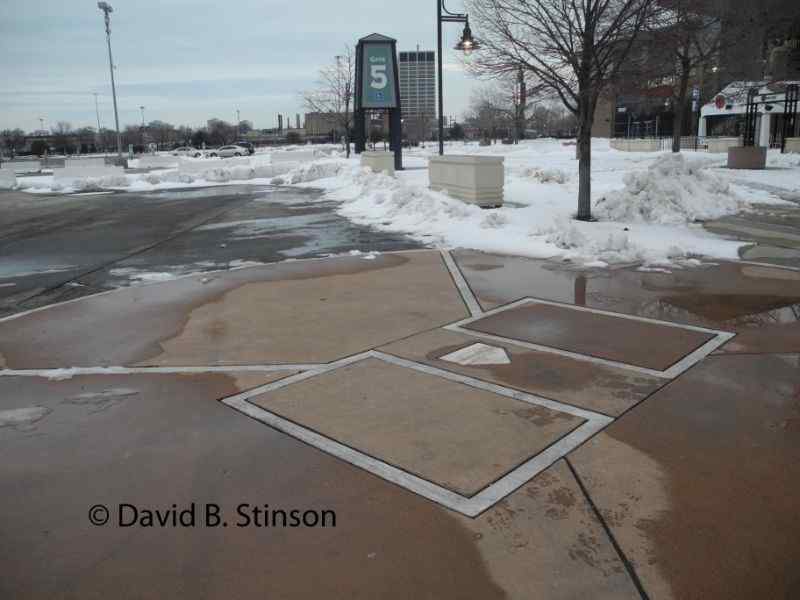
The parking lot includes a recreated batters box and markings of the left and right field foul lines.
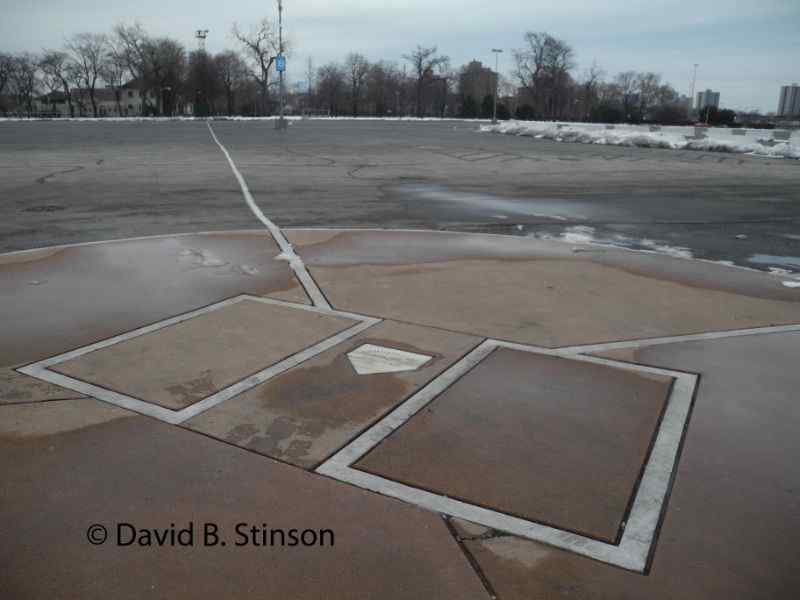
Straight away center field faces Toward Interstate 94.
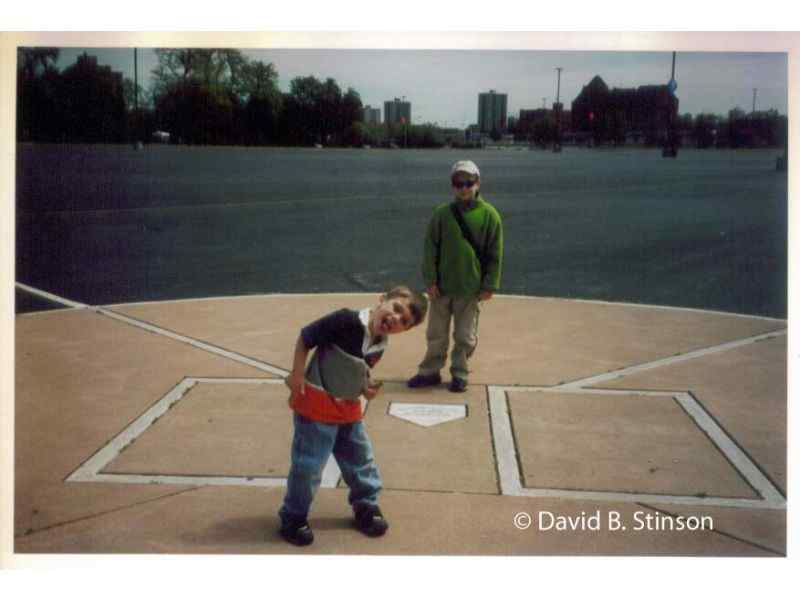
Although no part of old Comiskey Park remains on site, one curious artifact does remain in its original spot.
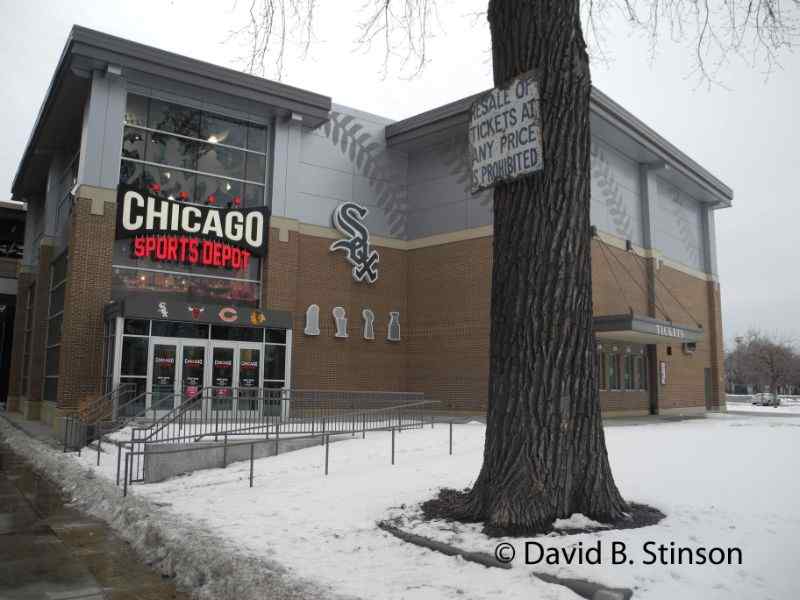
Nailed to a tree next to the Chicago Sports Depot, near what was once the entrance to old Comiskey Park, is a sign that warns: “Resale Of Tickets At Any Price Is Prohibited.” Presumably the policy against ticket resales remains in place as well.
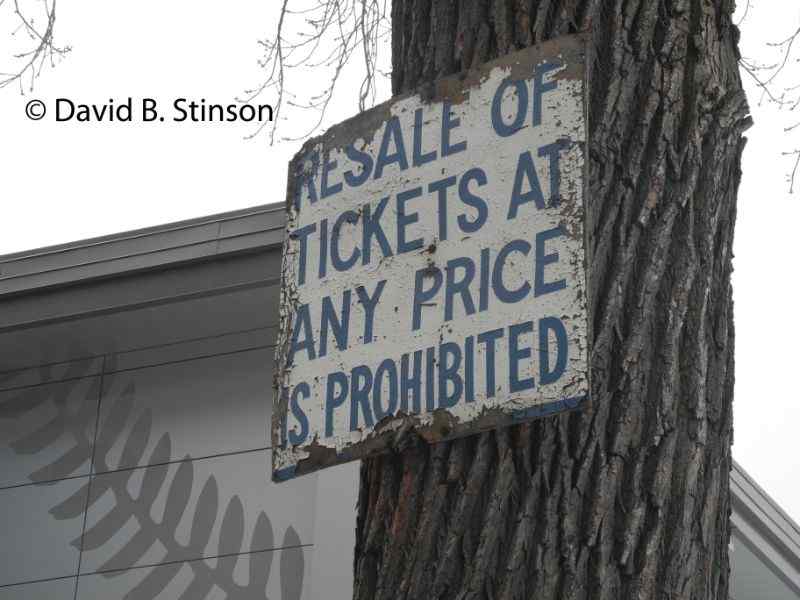
A tribute to Comiskey Park resides 700 miles southeast of the old Comiskey site in Greenville, South Carolina, former home of White Sox great Shoeless Joe Jackson. In the center of town is a plaza erected in tribute of Jackson, which includes a statute of the famous player.
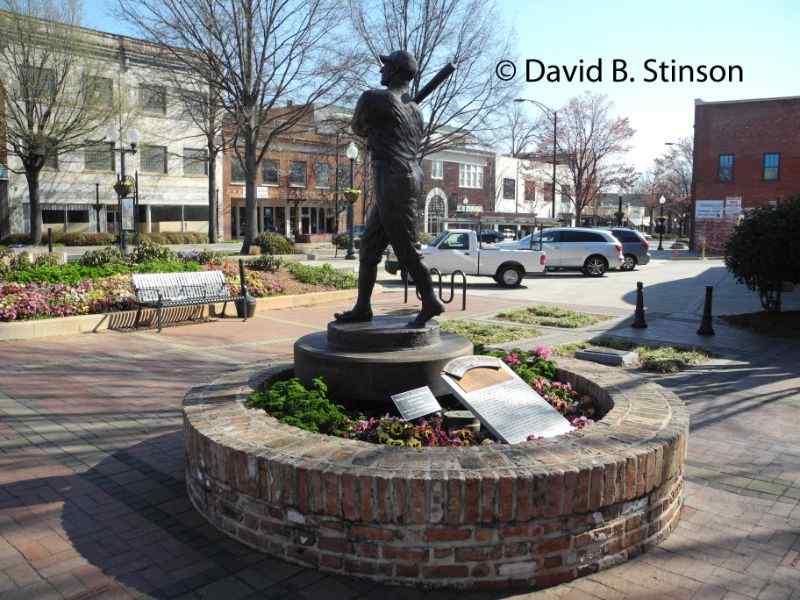
A plaque commemorating the plaza notes that the base of the statute is made from bricks taken from Comiskey Field after its demolition in 1990.
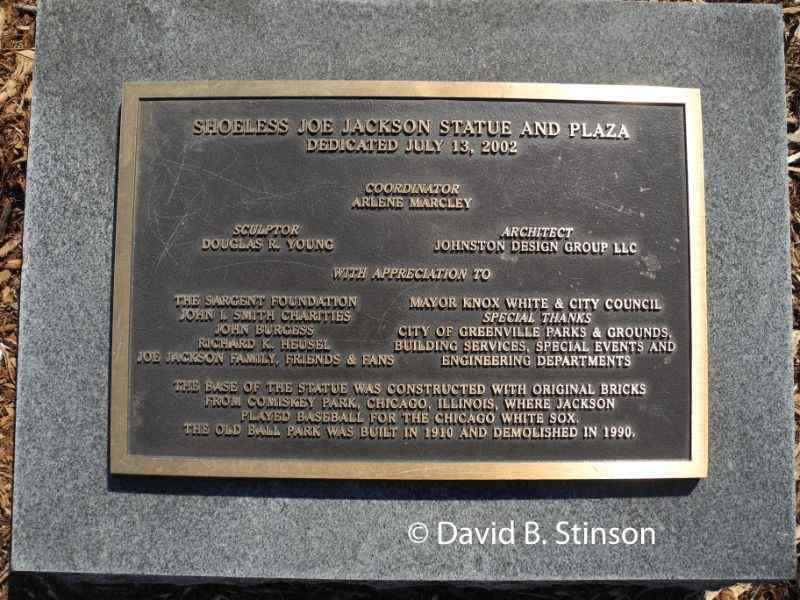
The White Sox’s decision to demarcate the former site of home plate allows fans of the game to visualize a small portion of the lost ballpark. Luckily for fans, the White Sox were careful to construct the lot so that parking is not allowed atop the former home plate. The same is not true for the rest of the field and Season Ticket holders with access to Lot B, who get to the game early, can park their car on former infield, atop the pitchers mound, in the outfield, or maybe even where Shoeless Joe Jackson once roamed right field.


[…] plaque commemorating the plaza notes that the base of the statute is made from bricks from Comiskey Park, removed during its demolition in […]